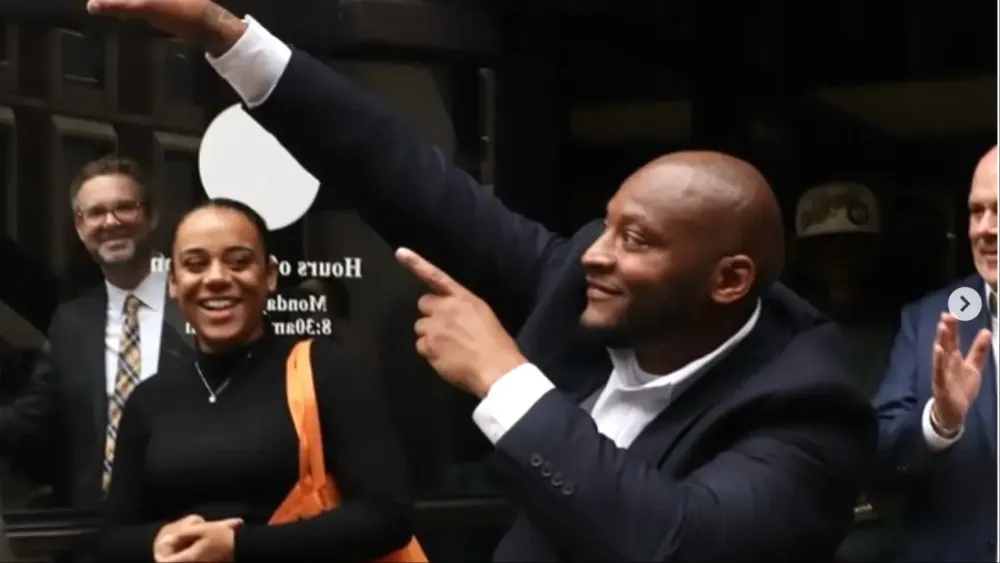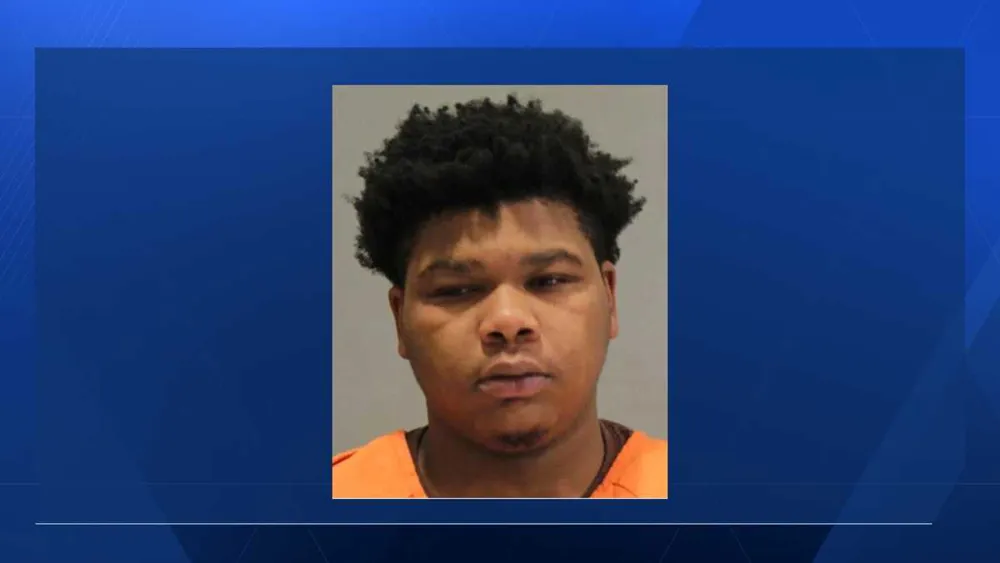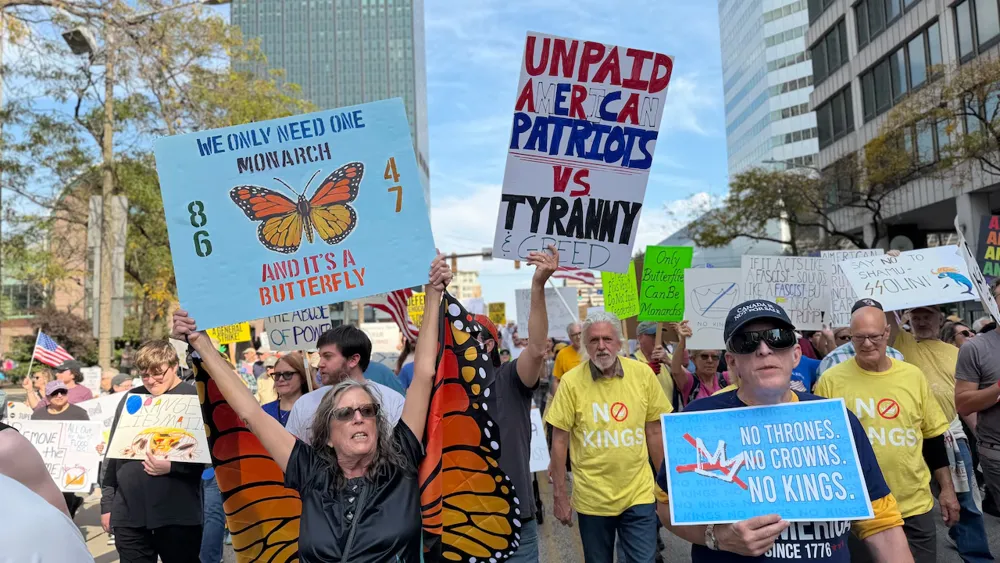‘Got a Freedom Fetish’: Black Man Steps Out of Massachusetts Prison After 28 Years After DA’s Admission That His Murder Conviction Came Via Police Misconduct

A Black man convicted of murdering a convenience store clerk in Boston in 1998 was released from prison this month after 28 years behind bars, after prosecutors told a Suffolk County Superior Court judge that he did not receive a fair trial and deserves a new one. Rickey “Fuquan” McGee was 19 in April 1997 when he was accused of killing clerk Geta Yalew, an Ethiopian immigrant, at a store in the Fenway area by shooting him execution-style in the back of the head around 2:30 in the morning. The assailant had stolen $94 in cash, food stamps and coins from the store’s register and fled, court records show. Beyond some bullet fragments, not much evidence was available at the crime scene — no surveillance video, fingerprints, bullet shell casings, or eyewitnesses — but police later said two different people told them that McGee had confessed to them that he committed the murder, the Boston Globe reported. Rickey "Fuquan" McGee (center), convicted of murder in 1998, celebrates with supporters, including his fiancée and legal advocate Jacqueline Fonseca (left), on Oct. 14, 2025, after he was allowed by a Suffolk County Superior Court judge to remain out of prison as he awaits the judge's ruling on his bid for a new trial. (Photo: freefuquan Instagram Profile) His defense team had argued that the case relied on the testimony of unreliable, untrustworthy witnesses, but a jury convicted McGee of first-degree murder, which carries a sentence of life without the possibility of parole. In 2014, the Massachusetts Supreme Court rejected his appeals. Over the years, McGee studied the law in prison and became politically involved, advocating for the rights of incarcerated men like himself who believe they were wrongly convicted through the Harriet Tubman Project, which he co-founded. Amid that activism, he met Jacqueline Fonseca, who works with the New England Innocence Project. They hit it off and began dating, the Globe reported, and are now engaged. ‘I’m Gonna Hurt You!’: North Carolina Trooper Punches, Drags Disabled Man After Seizure-Induced Crash and the Disturbing Accusation That Followed Led to a Lawsuit After investigating his case, the Innocence Project brought forth new allegations that police had tampered with witnesses and did not turn over potentially exculpatory evidence. In March 2024, McGee filed a motion seeking a new trial that listed several grounds for the relief he sought. That included new evidence showing that Boston police had induced a key witness, Natasha Hamilton, to testify against him by shielding her from prosecution for crimes involving bank fraud that police knew she had committed, the motion argued. Hamilton was a friend of McGee’s mother, Marion, staying along with her three children as a guest in her house, located a few blocks away from the convenience store, on the night of the murder. She came forward three months later, when police were struggling to solve the crime, to say that McGee, who also lived in the house, had come home in the wee hours and confessed to killing the clerk. Hamilton also said he showed her the cash and food stamps he stole, and the “black gun” he used. At trial, McGee's defense attorneys tried to portray Hamilton as having been involved in a check-forging scheme with his mother that ended after the shooting, causing Hamilton to become resentful over losing that source of money, court documents show. They also argued that Hamilton believed that McGee's mother had contacted the social service agency responsible for removing Hamilton’s children from her care and sought revenge against him for that reason. Hamilton denied that she harbored such resentments. The defense also argued that Hamilton was motivated by the $25,000 reward offered by the convenience store for information leading to the arrest of the clerk's murderer, which Hamilton did collect. She later denied that the reward money influenced her decision to report McGee to police, professing instead that she knew and felt sorry for the deceased clerk. “It was weak, and a lot of it was just faulty, and the person was just making things up,” McGee’s defense lawyer, Jeffrey Harris, told GBH News of Hamilton's original testimony on Tuesday. Any physical evidence didn’t corroborate Hamilton’s story about McGee’s involvement in the murder, but there was surveillance video footage from that night showing Hamilton and McGee together at a different convenience store less than an hour after the murder occurred. Boston police used that circumstantial evidence and her statements to obtain warrants to arrest McGee and to search his residence. During that search police found a photograph taped to McGee’s bedroom wall showing his childhood friend, Earrie Fenderson, holding two guns in his hands — one a revolver. Police began to suspect that the gun was the murder weapon, a .38 revolver, per ballistics reports on the bullet that killed Yalew. With this photograph in hand, homicide detectives confronted Fenderson, who was 15 years old and, he later said, intoxicated. He initially denied knowing anything about the murder, but detectives then showed Fenderson the picture of himself holding the purported murder weapon and, according to the defense motion, falsely told the boy that his friend Rickey would testify against him. Fenderson then changed his story and implicated McGee. The 2024 defense motion also claims that police knew of another plausible suspect, Damian Gray, but violated McGee’s right to a fair trial by "suppressing evidence that would have enabled him to present a compelling third-party culprit defense." Almost three decades later, the Suffolk County DA’s office conducted its own investigation, reviewed new and old evidence and reinterviewed witnesses. This month, prosecutors filed a motion in response to McGee's saying "a confluence of factors created a substantial risk of a miscarriage of justice” in his case that warrants a new trial. The filing stopped short of saying McGee did not commit the crime, the Globe observed, but said the trial verdict should be vacated and the charges dropped. At the hearing in Suffolk Superior Court on October 14, ADA Zachary Host told Judge Michael Ricciuti that McGee’s defense lawyers did not have the ability to properly cross-examine the primary witnesses against him because the police had not turned over evidence that could be used to impeach them. “The defendant may not have been properly prosecuted,” Host told the judge. After hearing arguments from both the prosecution and the defense as to why he should grant the unusual request to release a man convicted of murder while he considered his request for a new trial, Ricciuti said, “It’s close … but I don’t think it’s fair to keep this defendant in jail.” The judge bid the now 48-year-old McGee, who stood in the courtroom wearing a blue suit, his shaved head bowed, “Good luck,” and ended the 30-minute hearing. After McGee was processed for probation and released on conditions that include a curfew and mental health counseling, he burst out of the court office and into his mother’s awaiting arms. Marion Merriman gave McGee a long bear hug and said she felt like she’d just given birth to him a second time. McGee will live with Merriman until he returns to court on Oct. 27 for another hearing in front of Judge Riciutti, who will, in the meantime, make a final decision about whether to overturn his conviction and grant him a new trial. “We’re gonna take it one day at a time, that’s all I can say — just one day at a time,” Merriman told GBH News. “Let him get used to his surroundings.” McGee also had a jubilant reunion with Fonseca, his fiancée and longtime legal advocate, then raised his fist victoriously before a crush of relatives and supporters outside the courthouse. “I got a freedom fetish,” McGee said, raising his open palms skyward. Of prison life, he said, “It’s about staying committed, staying a day ahead of hell, and just paying it forward." He said he will push to have his conviction officially vacated and will continue to work on helping others who are wrongly incarcerated to pursue exoneration. “I appreciate the love. It's felt, it's palpable," McGee said. "Just know that there’s countless brothers, man, that are going through tribulations in there and they’ll never be forgotten. I’m out, but I’m out to get more out.”

